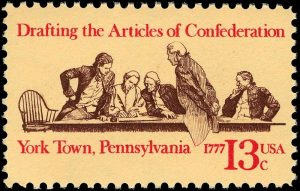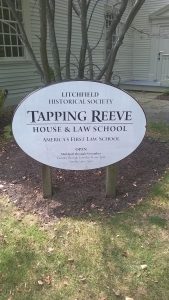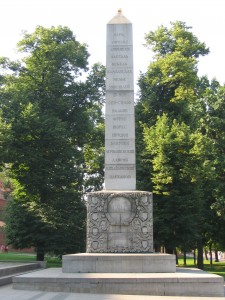How Many Years Does It Take to Bake a Constitution?
 As the first Tuesday following the first Monday in November approaches — that is, National Election Day — the talking-head debate intensifies over candidates, politics and what is right/wrong with the American system of governance. There is one missing piece to the debate — context — that is seldom discussed, or understood. Indeed, if the average voter dislikes the candidates and the election process (something I hear a lot), then it’s time to take a step back and look at the big picture question of how we got here. In what I hope will be a six part series, I will attempt to provide context to our system of government, our election process and, hopefully, a little history to evaluate and consider in your next candidate-debate.
As the first Tuesday following the first Monday in November approaches — that is, National Election Day — the talking-head debate intensifies over candidates, politics and what is right/wrong with the American system of governance. There is one missing piece to the debate — context — that is seldom discussed, or understood. Indeed, if the average voter dislikes the candidates and the election process (something I hear a lot), then it’s time to take a step back and look at the big picture question of how we got here. In what I hope will be a six part series, I will attempt to provide context to our system of government, our election process and, hopefully, a little history to evaluate and consider in your next candidate-debate.
Part One – How Many Years Does it Take to Bake A Constitution?
If you polled the average American citizen, asking if they heard of the Declaration of Independence, most would answer yes. The citizen might even know the year and date — July 4, 1776.
But ask the same citizen when the Constitution of the United States was adopted (which technically means when it was “ratified” by the States), and you’ll likely get a blank stare, an “I don’t know”, or a guess — likely July 4, 1776.
The correct answer to that question is: June 21, 1788.


 Next year is the quincentennial of the publication of Thomas More’s Utopia, and celebrations of the book and its author have already begun. More, of course, is a darling of Western culture and politics. He was canonized and is considered the patron saint of politicians and statesmen. Essayist C.K. Chesterton said that More may be “the greatest historical character in English history.”
Next year is the quincentennial of the publication of Thomas More’s Utopia, and celebrations of the book and its author have already begun. More, of course, is a darling of Western culture and politics. He was canonized and is considered the patron saint of politicians and statesmen. Essayist C.K. Chesterton said that More may be “the greatest historical character in English history.”